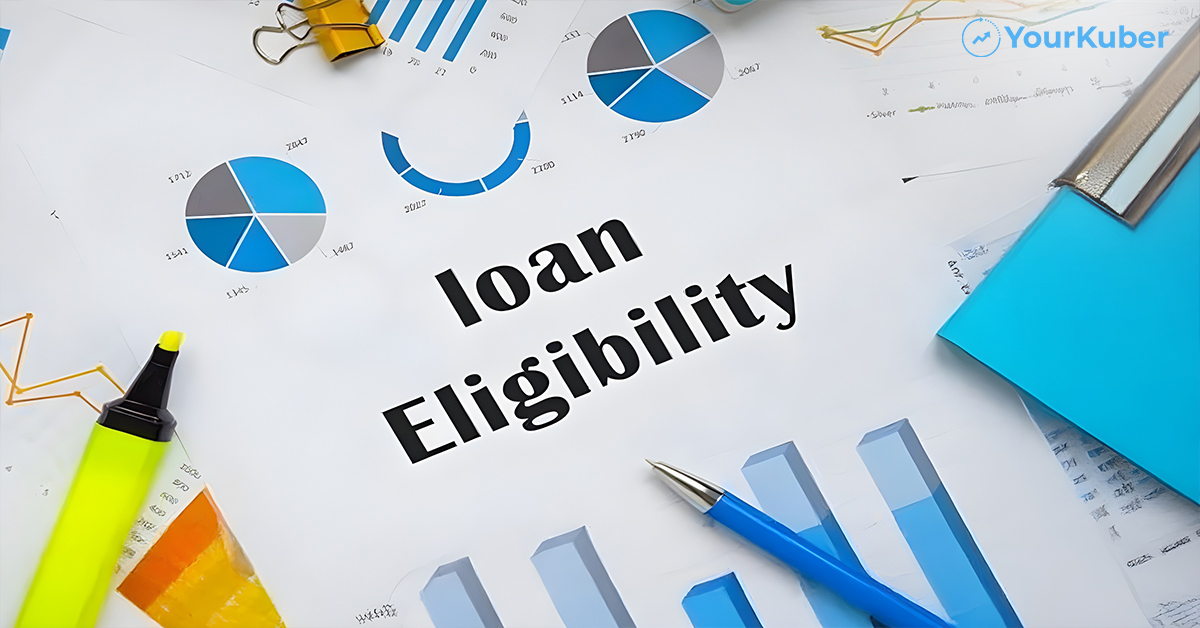Mortgage Loan Eligibility Criteria in India: A Complete Guide
If you’re planning to apply for a mortgage loan, it’s important to understand the eligibility requirements before approaching any lender. In fact, mortgage loan eligibility depends on various factors like income, age, property value, employment status, and credit history. In this blog, we break down all the important eligibility criteria you need to meet in India to successfully get your mortgage approved.
What is a Mortgage Loan?
A mortgage loan is a secured loan where you pledge your property—residential, commercial, or land—as collateral in exchange for funds from a bank or financial institution. It is often used for business expansion, education, medical emergencies, or personal requirements. Since it involves your property as security, lenders need to evaluate your repayment capacity carefully.
Mortgage Loan Eligibility Criteria in India
To help you assess whether you’re eligible, here are the major factors most lenders consider:
1. Age of the Applicant
Age plays a crucial role in mortgage loan approval. Generally, lenders prefer borrowers who are in their prime earning years, typically between:
- Salaried individuals: 21 to 60 years
- Self-employed individuals: 25 to 65 years
Moreover, the closer you are to retirement, the lower your eligible loan tenure and amount.
2. Employment & Income Stability
Most lenders look for a stable income source to ensure you can repay the loan EMIs (Equated Monthly Instalments) without default.
- Salaried professionals should have at least 2-3 years of work experience, preferably with their current employer for 6 months or more.
- Self-employed individuals must show a stable business track record for a minimum of 3 years, with ITRs as proof.
Furthermore, your monthly income will directly impact the loan amount you’re eligible for.
3. Credit Score and Repayment History
A healthy credit score (preferably 750 or above) significantly improves your chances of mortgage loan approval. Specifically, lenders assess your past repayment behaviour, including:
- Timely EMI payments
- Outstanding loans
- Credit card usage
- Defaults or settlements
Therefore, if your credit history is clean, your application will be stronger and may even qualify for lower interest rates.
4. Property Type and Value
Since a mortgage loan is secured against your property, the type, age, and market value of the property matter a lot. Eligible property types include:
- Residential flats and homes
- Commercial properties
- Vacant land (in some cases)
Typically, lenders offer up to 60-70% of the market value of your property as a loan. However, the property must also have clear legal titles, be free from disputes, and conform to municipal approvals.
5. Documentation Requirements
Proper documentation is a must for loan approval. So, here’s a list of common documents needed:
- PAN Card and Aadhaar Card
- Income proof (salary slips/ITR)
- Bank statements (last 6 months)
- Property papers (sale deed, tax receipts, etc.)
- Employment certificate or business proof
- Address and ID proof
Keep these documents ready to fast-track your mortgage loan application.
6. Existing Liabilities
Lenders check your debt-to-income ratio before approving the loan. If your DTI is high, your eligibility might be reduced. Ideally, it’s best to keep a DTI below 40%.
7. Co-Applicants Can Help
Adding a co-applicant—such as your spouse, parent, or sibling—can boost your eligibility. Their income, when clubbed with yours, allows for:
- Higher loan amount
- Better chances of approval
- Shared liability in repayment
Nevertheless, the co-applicant must also meet the lender’s eligibility criteria.
Tips to Improve Your Mortgage Loan Eligibility
Here are some practical ways to increase your chances of loan approval:
- Maintain a high credit score
- Clear your existing debts before applying
- Choose a longer tenure for lower EMIs
- Declare all sources of income, including rental or freelance earnings
- Apply with a co-applicant
- Select properties with clear legal documents
Final Thoughts
Understanding and meeting the mortgage loan eligibility criteria can save you from rejection and delays. Therefore, always compare multiple lenders, read the fine print, and use a mortgage loan eligibility calculator before applying. Whether you’re salaried or self-employed, having your documents ready and keeping a good credit record goes a long way.
Key Takeaways:
- Focus on credit score, income, and age
- Ensure the property is legally clear
- Add a co-applicant to enhance eligibility
- Keep all documents updated and ready

